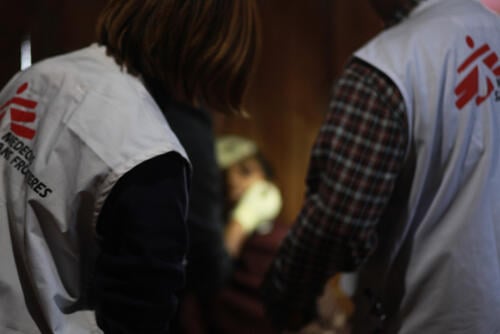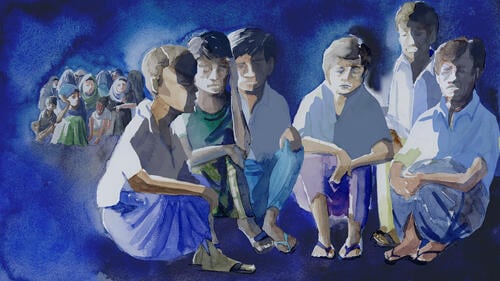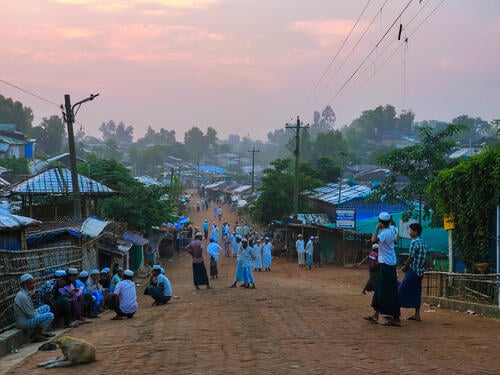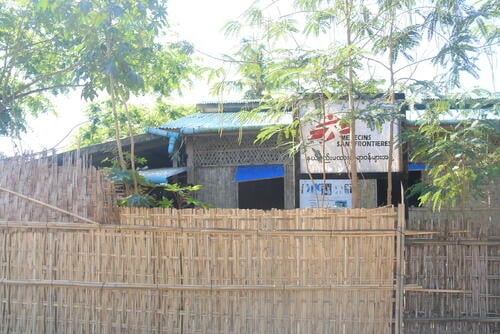Myanmar is facing an acute humanitarian crisis since fighting escalated at the end of October 2023. The intensification of conflict has led to a lack of humanitarian access to areas where people need urgent assistance, a decimation of the healthcare system, and due to a law passed in February, increasing fear among people of military conscription, or forced recruitment into other armed groups.
Dr. Nimrat Kaur has been the project coordinator in Maungdaw since mid-April 2023. She arrived to the project just before Cyclone Mocha hit last year on 14 May 2023, and has seen first-hand the challenges faced by people living there. Now leaving Myanmar, Nimrat shares her experience, reflecting on the events she witnessed and the impact this is having on people’s lives.
What did you witness in northern Rakhine state?
Since 13 November 2023, we have seen an escalation of conflict in Rakhine state, and the townships of Maungdaw, Buthidaung and Rathedaung became cut off from the rest of the state. Communities have not been able to move across the state, and supplies have not come been accessible. I don’t just mean healthcare supplies, but basic life-supporting supplies like food, petrol, water. These kinds of things have been restricted, which has caused an inflation in prices for the supplies that are available.
There were days that were filled with fear. We had some experiences of when the fighting was very close, and we had to hide. We had to move the team to the safe room almost three or four times a day.
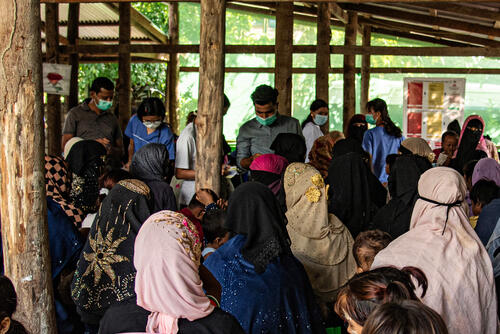
How has MSF been supporting communities in this area?
Usually, in northern Rakhine, we work through mobile clinics. This is where a mobile team of doctors, nurses and other staff go to rural areas far from the main town. Since the conflict started, however, we haven’t been able to run these clinics. This is due to increased insecurity and because we did not receive authorisation.
People in the areas we usually travel to already have very limited access to healthcare. To run medical humanitarian activities in Rakhine state, MSF requires an official authorisation from the authorities. Since conflict erupted again in November 2023, MSF has not received this authorisation. We’re extremely concerned about the impact on these people, who usually rely on our mobile clinics for medical services.
How has the conscription law affected people in northern Rakhine?
Three months into the latest eruption of conflict, a conscription law was announced in the country. The law states that citizens are expected to serve in the armed forces for anything from two to five years. I’ve seen how this has affected everyone. Rakhine communities have been trying to leave the state and go to Sittwe or Yangon and find refuge somewhere. Unfortunately, my Rohingya colleagues and the wider Rohingya community do not have paperwork to move outside of their own village, so I really wonder what is going to happen to them and I am really worried about their safetyRohingya people were stripped of their citizenship at home in Myanmar in 1982, rendering them stateless, and face severe restrictions imposed on all aspects of their lives, including their freedom of movement. Rohingya people cannot move from the fenced camps or villages they are contained to without receiving authorisation..
I could see a change in our staff and their understanding of what is happening in the country - that the conflict is now at another level.
I am fortunate I had the opportunity to leave the violence, but many don’t have the opportunity to even move. I really feel for them. That thought really consumes me.Dr. Nimrat Kaur, the project coordinator in Maungdaw
Why are the Rohingya community particularly vulnerable?
In Rakhine state, there is a mix of ethnicities. There are Rakhine, Rohingya, and Hindus. Arakanese are citizens of Rakhine, but Rohingya were stripped of their citizenship in 1982.
Generations of Rohingya people have really struggled for what they have now. You cannot understand how challenging and limited life is for them.
In our team, we have Rohingya staff. Some of these staff have been able to get a citizenship card, but this is an exception and not the case for most. Other Rohingya staff do not even have a national identification card or a basic yellow card, which is needed to move even just within their own village.
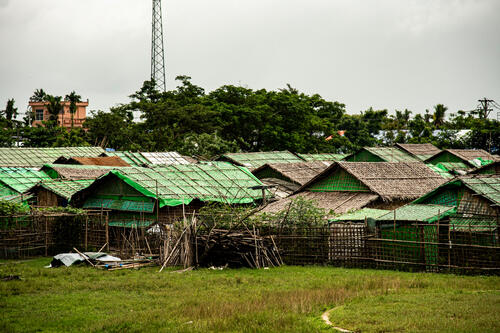
What are the current healthcare options for communities in northern Rakhine?
We have been able to run mobile clinics since the conflict started, and already these communities we were assisting were vulnerable because of the lack of access to safe healthcare. We tried to provide a few months' worth of medications to our own patients who are taking diabetes or hypertension drugs.
We have also supported with tele-consultations, which we have tried to maintain to support people who need mental healthcare. But this unfortunately could not last for more than a few weeks, as since 10 January, Buthidaung and Maungdaw have not had any electricity and with no electricity there was also no cell coverage.
The latest blow for people has been the closing of Maungdaw and Buthidaung township hospitals. These two township hospitals were the only healthcare stakeholder left with whom we could work with and refer emergency patients to. This has had a huge impact on communities here. If the township hospitals are closed, where do people go?
With hospitals shut, people reach out to MSF and healthcare organisations on the ground to support them, but we have had limited capacity in terms of resources. We do usually stock up for a minimum of four to five months, but those stocks have not lasted very long. We still don’t have any way to bring in our supplies. Staff have also not been feeling safe working in Maungdaw, Buthidaung and Rathedaung.
Day to day activities are becoming more difficult. We need fuel to run an office so we can have internet and be connected to the rest of our team. It has really affected us that we are not able to serve the community we are there for.
I am fortunate I had the opportunity to leave the violence, but many don’t have the opportunity to even move. I really feel for them. That thought really consumes me.



